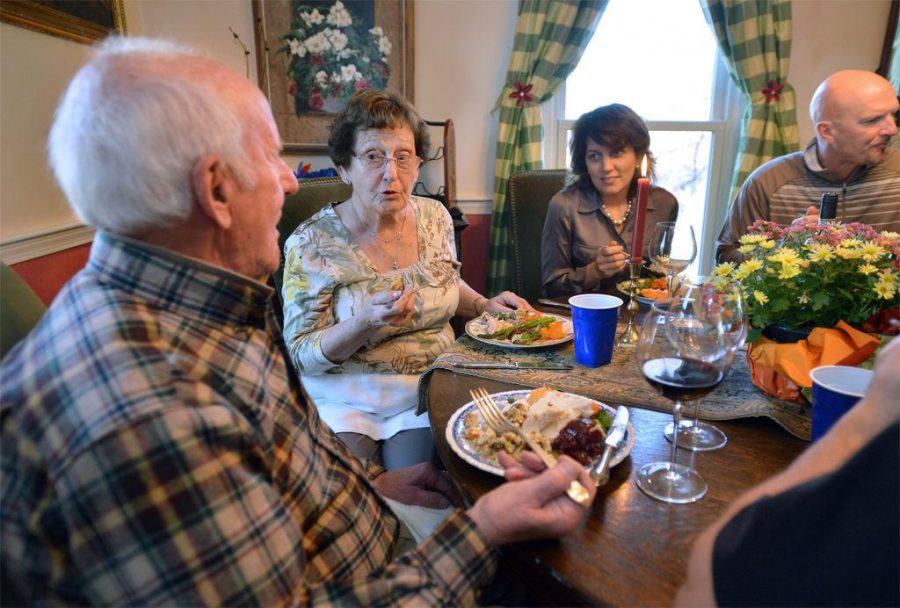Editorial: Pumpkin pie with a side of political debate
November 30, 2014
Upon returning to Pitt after break, many students will be reeling from the post-Thanksgiving break hangover. Symptoms include, but are not limited to, weight gain, chronic sleep indulgence and partisan angst.
Home-cooked meals and a lack of 8 a.m. classes cause the first two symptoms, discussing current events with your family, the third.
Unsurprisingly, parents, grandparents, aunts and uncles tend to have differing viewpoints than millennials on modern social issues, such as marriage equality, gender equality, race and religion. As a result, Thanksgiving dinner can be awkward when politics are brought up, and the togetherness of the Thanksgiving table can quickly become as polarized as the U.S. Congress.
It’s a testament to the generational gap that exists between our older family members and us. Marriage equality is a relatively new phenomenon and, if you think about it, Jim Crow laws were only eliminated about 50 years ago — many of our older family members grew up in a time of institutionalized oppression in this country, while we have come of age during a time when equal rights are viewed as realistic and reachable goals.
Yes, things have changed, but, unfortunately, we all have those family members whose views have not. So, in order to make the next holiday family dinner less confrontational and, perhaps, more constructive, you have to be prepared.
Even though it may be easier to be passive at the family table, silently nodding at your uncle’s regressive views on race relations, you should stand up for your convictions. Let your family know what you are passionate about. Create an open dialogue, rather than allowing more separation between you and your family to occur. No matter what, you’ll always be a son, daughter, niece or nephew — having your own beliefs doesn’t change that.
That’s not to say, however, that you should immediately slam your fist on the table and start yelling as soon as you hear something you disagree with. Quickly negate the mood, and let your family member know that you are coming from a point of love, not aggression. Inform them that this particular issue affects your life, and you would really like for them to consider your point of view because it’s important to you. But don’t be pretentious — acting snobbish will certainly make your point of view less relatable.
Then, once everyone’s eyes are darting between you and your family member in question, attempt to close that generational gap. Bring the issue close to home, and let them know that tired stereotypes and overgeneralizations hurt very real people, of whom you may be very close to. Once your family sees the humanity in these issues, hopefully they will be less likely to jump to rash conclusions.
Of course, none of this is to say that you should look to pick fights at the family dinner table, but if disagreements happen to come about, try to follow these tips not just for your sake but, perhaps, for the sake of the next friend, boyfriend or girlfriend you bring to meet your family.








